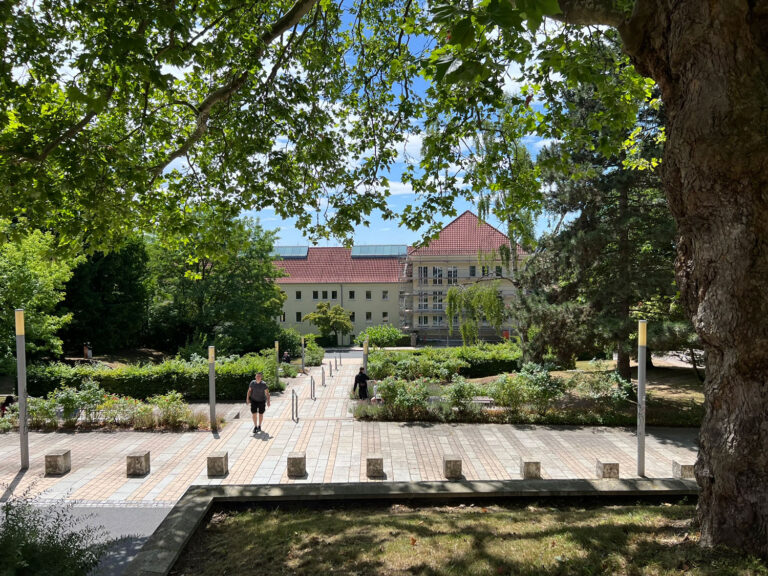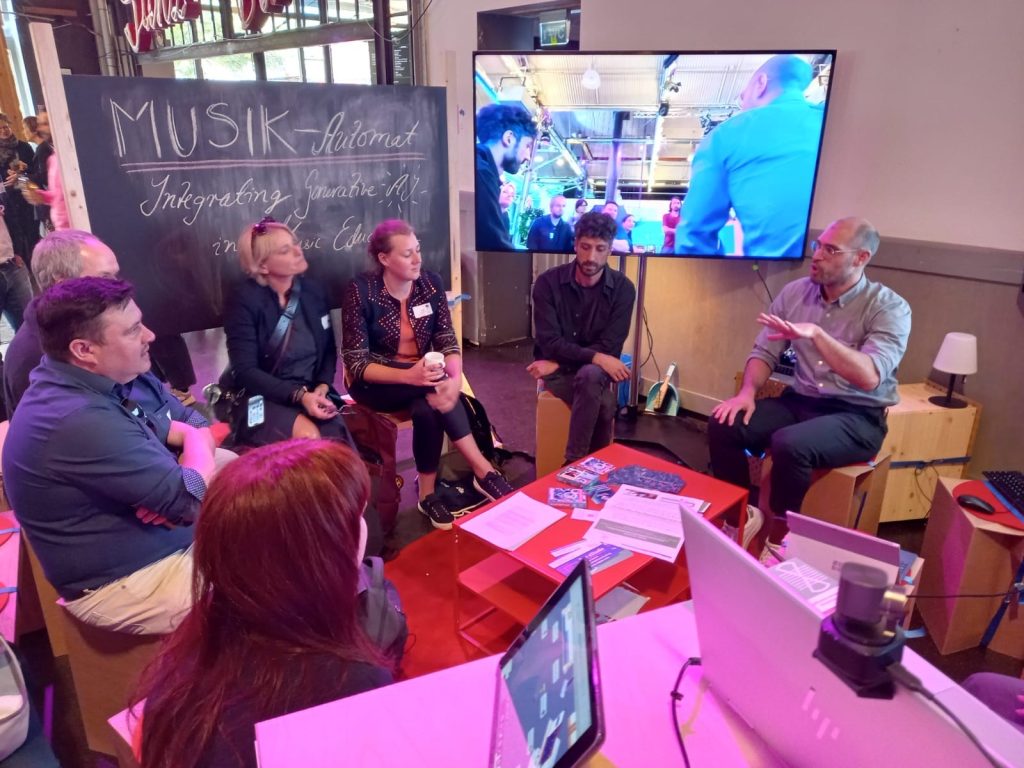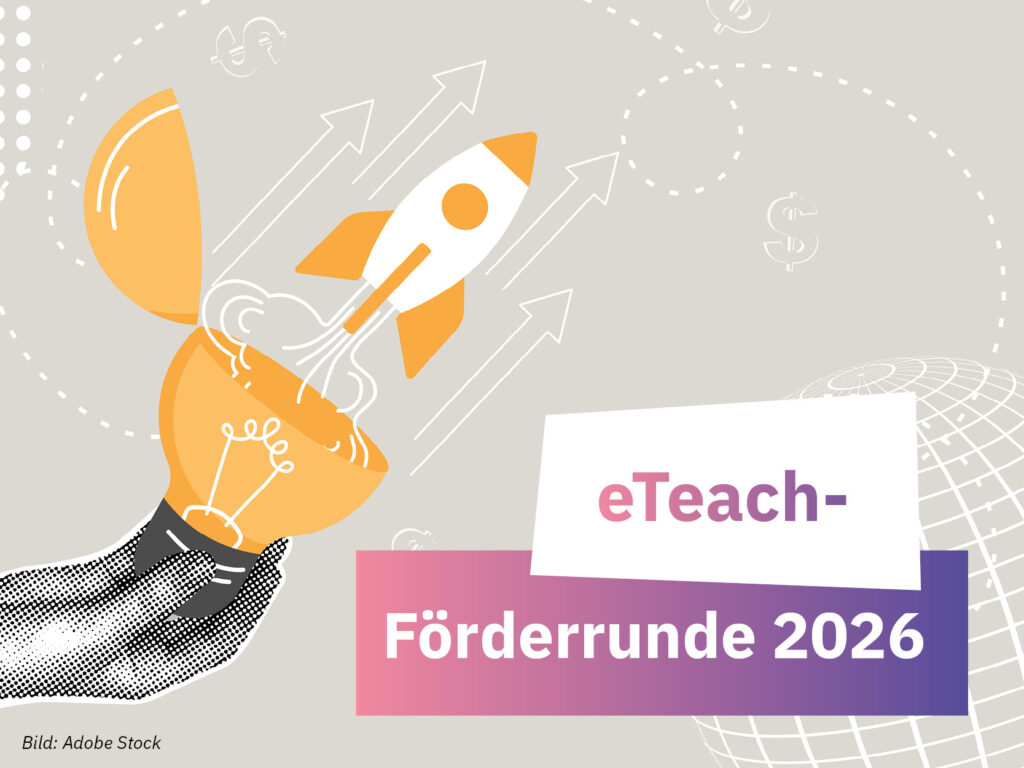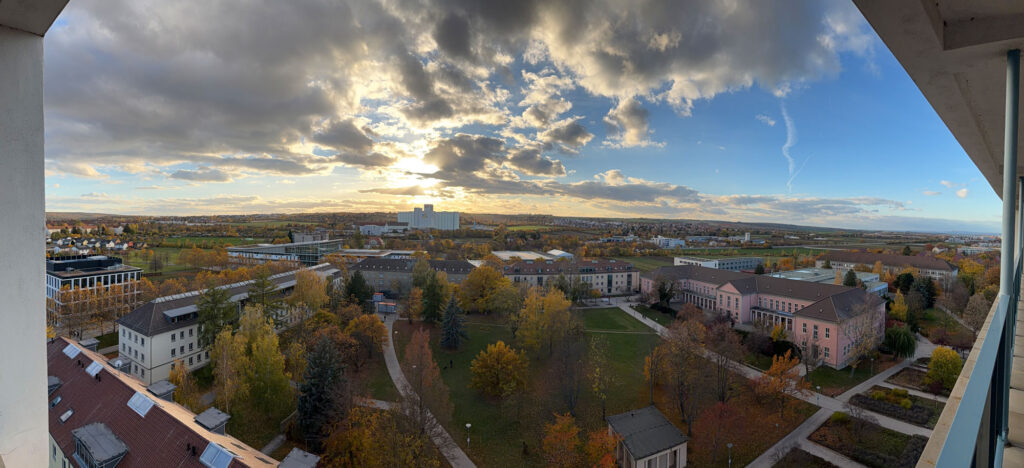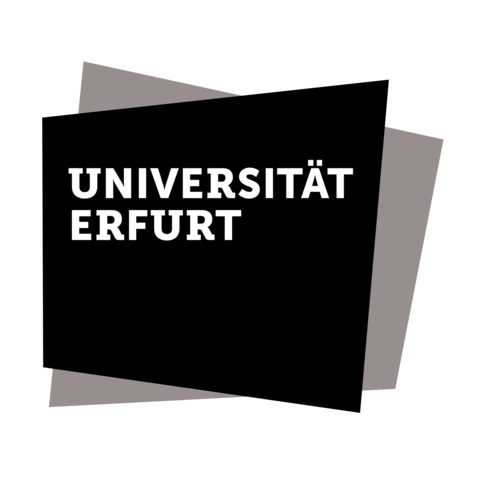eTeach presence meeting at Nordhausen University of Applied Sciences
On July 10, the eTeach network met for a face-to-face meeting at Nordhausen University of Applied Sciences. It was hosted by Martin Groß, the university's eTeach contact point, who organized a varied day with great commitment. The event offered participants not only a professional exchange, but also exciting insights into the innovative and social projects on the idyllic campus in the east of the city.
Professional kick-off with a view of the countryside
The day began with a warm welcome from the President of the university, Prof. Dr. Jörg Wagnerfollowed by words of welcome from the Vice President for Studies and Teaching and the Academic Director of the eTeach network, Prof. Dr. Cordula Borbe. The participants then moved on to the working sessions of the respective eTeach working areas, in which current topics relating to digital teaching and learning were further developed.
Campus tour with a social heart and innovative research
In the afternoon, a guided campus tour was on the agenda - and this made it clear that Nordhausen University of Applied Sciences is not only a place for technology and social affairs, but also for community and visions for the future.
One highlight was the Presentation of the HochschulSozialarbeit (HSA) project - a project close to Cordula Borbe's heart. The HSA is a point of contact for students who need support with psychological stress, such as depression, ADHD or in challenging private or study-related situations - for example with orientation problems, experiences of discrimination or barriers to learning, such as dyslexia or dyscalculia. This is unique in Thuringia.
What makes it special: The HSA works closely with the Studierendenwerk and offers particularly low-threshold access - without an appointment, directly on campus. The staff are easily recognizable and are available for spontaneous discussions. The offer is supplemented by learning coaching and an anonymous exchange forum on Moodle. Around 70 % users are German-speaking and around 30 % are international - a reflection of the student structure. Lecturers can also use the service. The continuation of the HSA beyond 2026 is firmly in sight.
In the micro lab
Another stop led to the Laboratory for microbiologywhere current research on the Waste management and biogas production was presented. Special attention was paid to the "CarboMass" project - a process for the decontamination and recycling of sewage sludge and biomass into a high-quality soil substitute. Prof. Dr. Uta Breuer emphasized the importance of this research for climate neutrality: biogas can be used as electricity, fuel or heat source - but politically, the expansion has stagnated since 2022. Smaller plants in particular are struggling with economic pressure, while at the same time the use of corn as an energy crop is increasingly viewed critically.
Finally, the guests were able to take a look under the microscope themselves - including a lizard skin with an impressive cell structure.
HIKE: Ideas need space
At the end of the tour, Jonas Mielke presented the university incubator HIKE before. Since 2020, HIKE has been supporting students and employees from the idea to founding a company - funded with €2.2 million as part of the BMBF program StartUpLab@FH.
The offer is diverse: from a six-month incubation program with lean startup methodology to interdisciplinary HIKEathons, boot camps on all aspects of AI and the Demoday with an audience award. The programme is complemented by regular workshops, talks and excursions - with a focus on topics such as sustainability, digitalization and New Work.
The face-to-face meeting of the eTeach network at Nordhausen University of Applied Sciences was far more than just an internal exchange - it was impressive proof of the high quality of teaching, research and support provided here. The university impresses with its consistent combination of academic excellence, innovative practical relevance and social responsibility.
Whether future-oriented biogas research, active social participation through university social work or creative innovation promotion in the HIKE incubator - quality is not only planned here, but also consistently implemented.
At the same time, it became clear what a central role the university plays for Nordhausen and the region: As a modern educational location in a rural area, it attracts young people from Germany and abroad, promotes a start-up spirit, strengthens social participation and makes an active contribution to the sustainable development of Thuringia with its research. It acts as a driver of innovation, a source of inspiration and a social anchor institution in equal measure.
Nordhausen impressively demonstrates how a compact but high-profile university can contribute to the quality of life, attractiveness and future viability of an entire region - far beyond the Doppelkorn.
